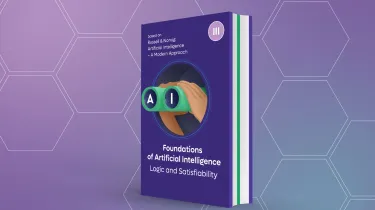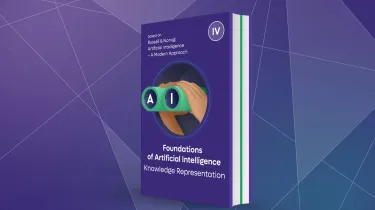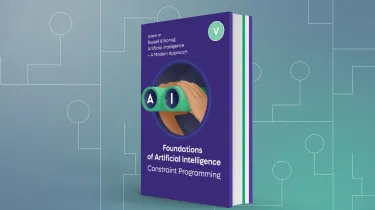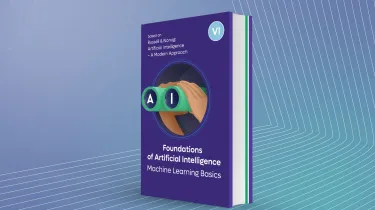Methods of AI II – Search Algorithms
This course introduces AI search algorithms and explains their use for solving practical problems.
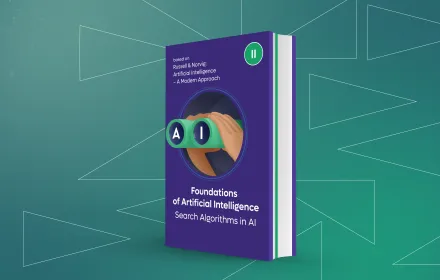
Overview
This course discusses AI algorithms for systematic, heuristic, local and stochastic search, as well as metaheuristics. It introduces the basic terminology and concepts to model search problems and explains how these are applied in practical application scenarios. Pseudo code for each algorithm is presented and algorithmic properties such as optimality, completeness as well as runtime- and space-complexity are discussed.
This course is partially based on chapters 3 and 4 of the textbook by Stuart Russell and Peter Norvig: Introduction to Artificial Intelligence - A Modern Approach.
The course is held in English language with German subtitles.
Which topics will be covered?
- Modeling of state-based search problems
- Tree-based search vs. graph-based search
- Systematic search (breadth-first search, depth-first search, depth-limited search, iterative deepening search, uniform cost search)
- Heuristic search (greedy search, A*, IDA*, bidirectional search, MM algorithm)
- Admissible and consistent heuristics
- Pattern databases
- Local and stochastic search (hill climbing, simulated annealing, UCT)
- Metaheuristic search methods (genetic algorithms, ant colony optimization)
What will I achieve?
By the end of the course, you‘ll be able to
- assess whether a practical application scenario can be solved by AI search algorithms,
- model search problems and choose the appropriate search algorithm,
- evaluate the success of an algorithm in practice.
Which prerequisites do I need to fulfill?
None.
The course “Methods of AI I – Intelligent Agents” provides background information on how to build intelligent agents and is helpful when developing an AI agent that uses search for problem solving.









